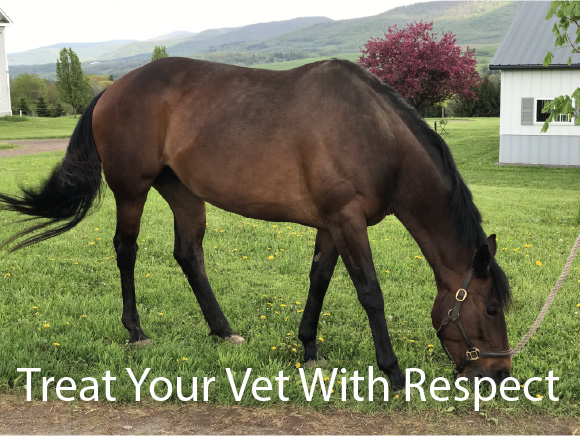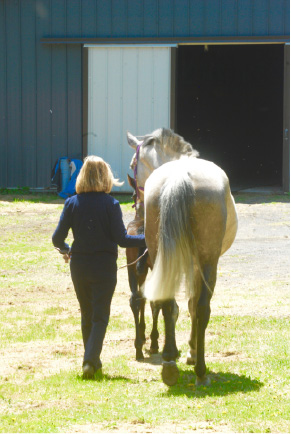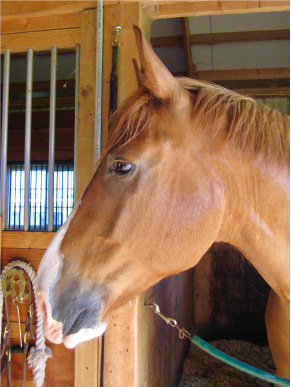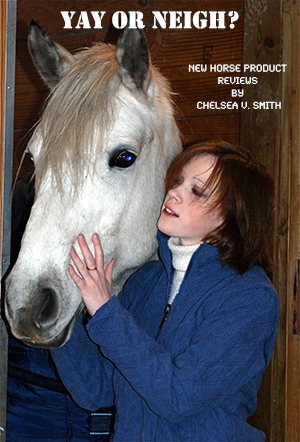Treat Your Vet With Respect
By CH Staff

A good working relationship with your vet is one built on mutual trust and respect.
Both parties should appreciate the time and effort that is put in by the other in regard to the horse’s welfare. The horse’s care should be a collaborative effort toward the same end goal, optimal health. There will be ups and downs, happiness and disappointment, joy and losses. Over time, the horse owner/vet relationship can become one of deep friendship and develop into a very special bond that transcends the daily rigors of equine care. Here are a few tips to help you establish a positive working relationship with your vet with advice on how to save a few dollars along the way.
Avoid “And While You’re Here…“ Requests
Respect for each other’s time is a good place to start building a solid relationship. Your horse should be ready for the vet’s arrival, preferably housed in a clean stall with at minimum a quick groom and hooves picked out. It is not fair to expect the vet to waste valuable time catching your horse in a field and no-one likes working on a dirty horse.
Provide a clean dry space for the vet to work that is free of clutter. Safety is of paramount importance and whoever handles the horse should be competent and confident. Train your horse to have basic ground manners such as standing still and quietly picking up its feet when asked. Have the horse’s history available for the vet to see, such as timeline for vaccinations, teeth floating, deworming or fecal worm egg test results, breeding status, previous baseline X-ray or ultrasound reports.
 You can save money on barn call charges if you gather all your needed veterinary work together and plan a list of tasks in advance of the visit. Consolidation of veterinary work is not always possible due to the emergency nature of some calls, but the more organized you are the better. If you call the vet out on an emergency, don’t expect the vet to complete a laundry list of other tasks on that visit. The short notice does not allow the vet time to plan their time to accommodate the other jobs.
You can save money on barn call charges if you gather all your needed veterinary work together and plan a list of tasks in advance of the visit. Consolidation of veterinary work is not always possible due to the emergency nature of some calls, but the more organized you are the better. If you call the vet out on an emergency, don’t expect the vet to complete a laundry list of other tasks on that visit. The short notice does not allow the vet time to plan their time to accommodate the other jobs.
Avoid ever saying to your vet, “ And while you’re here…” and adding work to their visit without prior notice. When your vet is late to an appointment it is very often because clients that came before you on the day’s schedule took more of the vet’s time than was expected. If an emergency comes up you can expect your vet to be late, so allow time for this to occur when you schedule a vet visit.
When your vet arrives it will save much time if you have your questions or tasks written down. It is so easy to forget to ask something in the moment and it is much easier on the vet to run through a quick list while you have their undivided attention than to have to call later to ask forgotten questions. Additionally, don’t take up the vet’s time with a lot of chatter.
The vet or his office staff should keep you appraised of any time delays for an appointment. Respect for each other’s time should be a two way street.
Educate Yourself
Learn how to take your horse’s vital signs and know what is normal for your individual horse. These include heart rate, respiratory rate, and temperature. It is also helpful to know normal gum color, capillary refill time, normal gut sounds, feces status (normal, hard fecal balls, none or profuse diarrhea), whether the horse is passing gas and the key signs of pain, particularly if you suspect the horse is in immediate need of attention, for example due to a possible colic.
When you provide this data to the vet in advance of their visit it helps them evaluate the level of emergency. Additionally, when the vet rechecks these vital signs on arrival, they have a baseline to go from to ascertain how fast the medical emergency has progressed.
Heed The Advice
While being an educated horse owner is essential for your horse’s wellbeing, where you source your information is equally important. When you pick up a book published by a professional equestrian publisher or read medical advice from a veterinary university, the material has been verified as useful and accurate. Posts on your Facebook wall requesting advice or Google searches that pull up notes on forums are not the best source for your education.
When your vet offers you advice on a treatment protocol, or suggests a diagnostic tool or course of action it is wise to heed the input that you have paid the professional in front of you to provide. In some cases you may wish to seek a second opinion from a veterinary specialist in a specific field and this is perfectly accepted practice.
Dollars Count
 Don’t be afraid to explain to your vet if you are electing to take a suggested course of action for treatment based on your inability to fund a more costly route. Your vet can often refer you to equine medical loan programs, and may even offer to give you terms to pay down a costly bill at a rate you can afford. Be aware that loans can have balloon payments, high interest rates and prepayment blocks. Always shop the marketplace and read the full loan agreement carefully.
Don’t be afraid to explain to your vet if you are electing to take a suggested course of action for treatment based on your inability to fund a more costly route. Your vet can often refer you to equine medical loan programs, and may even offer to give you terms to pay down a costly bill at a rate you can afford. Be aware that loans can have balloon payments, high interest rates and prepayment blocks. Always shop the marketplace and read the full loan agreement carefully.
It is imperative that you pay your vet bill on time unless other arrangements have been agreed. A vet has bills to pay too and running a veterinary practice is an expensive business. Time spent chasing down account receivables could be much better employed taking care of patient’s needs in other areas.
If you have a billing dispute, then bring it to the attention of the vet right away. Be professional and polite when you offer your viewpoint and explanation. A vet should always leave you a detailed note of what tasks were undertaken and prescriptions or products supplied during their visit. Good record keeping on your part will facilitate a positive method of resolving any billing dispute. Human error happens in account billing as in any other arena. Don’t take it personally.
Saving Money
Many vet practices offer Spring and Fall discounts for routine maintenance horse health care such as teeth floating, vaccinations, Coggins tests etc. on select dates in their ambulatory service area.
You may also be able to take your horse into the vet’s clinic facility for evaluation and treatment, which can save you the barn call altogether. Many vets offer services such as castration days, stallion and mare breeding evaluation days, where examinations and minor surgeries can be completed on an outpatient basis. As this saves the vet much time driving around the countryside and consolidates their earning potential in a set period, the rates for services at clinic visits are often cheaper than visits to your farm.
If you are boarding your horse at a barn with a number of other horse owners, the barn owner can save everyone money by organizing set dates for vet visits for routine care and barn call fees are often waived by the vet or may be split across all the participating horse owners


